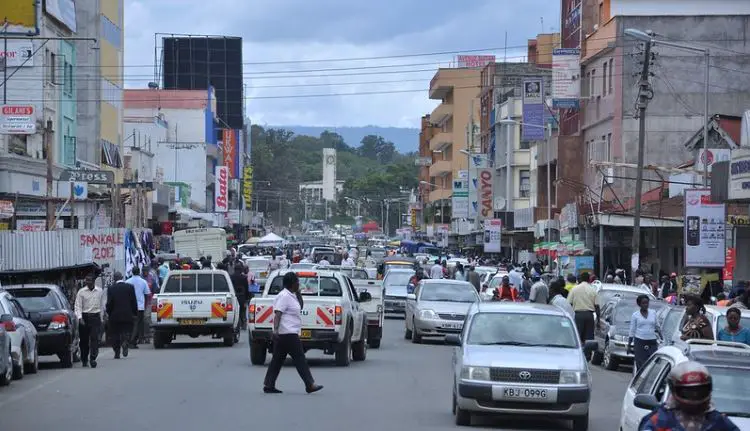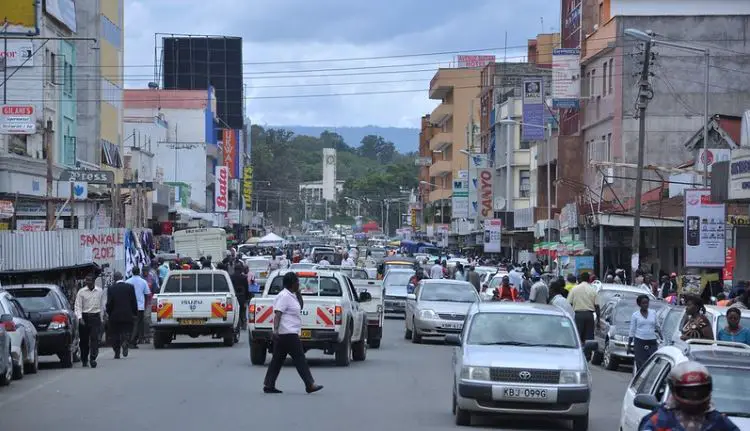Picture yourself strolling through the vibrant streets of Nakuru Town, where the bustling energy of urban life intertwines harmoniously with the serene beauty of Kenya’s Great Rift Valley. As you meander through the diverse neighborhoods, you’ll encounter a kaleidoscope of cultures, captivating landscapes, and warm-hearted locals eager to share their stories. From the stunning pink hues of Lake Nakuru and the exhilarating wildlife safaris to the vibrant markets and mouthwatering culinary delights, Nakuru Town is a treasure trove of experiences waiting to be uncovered. Get ready to immerse yourself in the enchanting charm of this captivating destination!
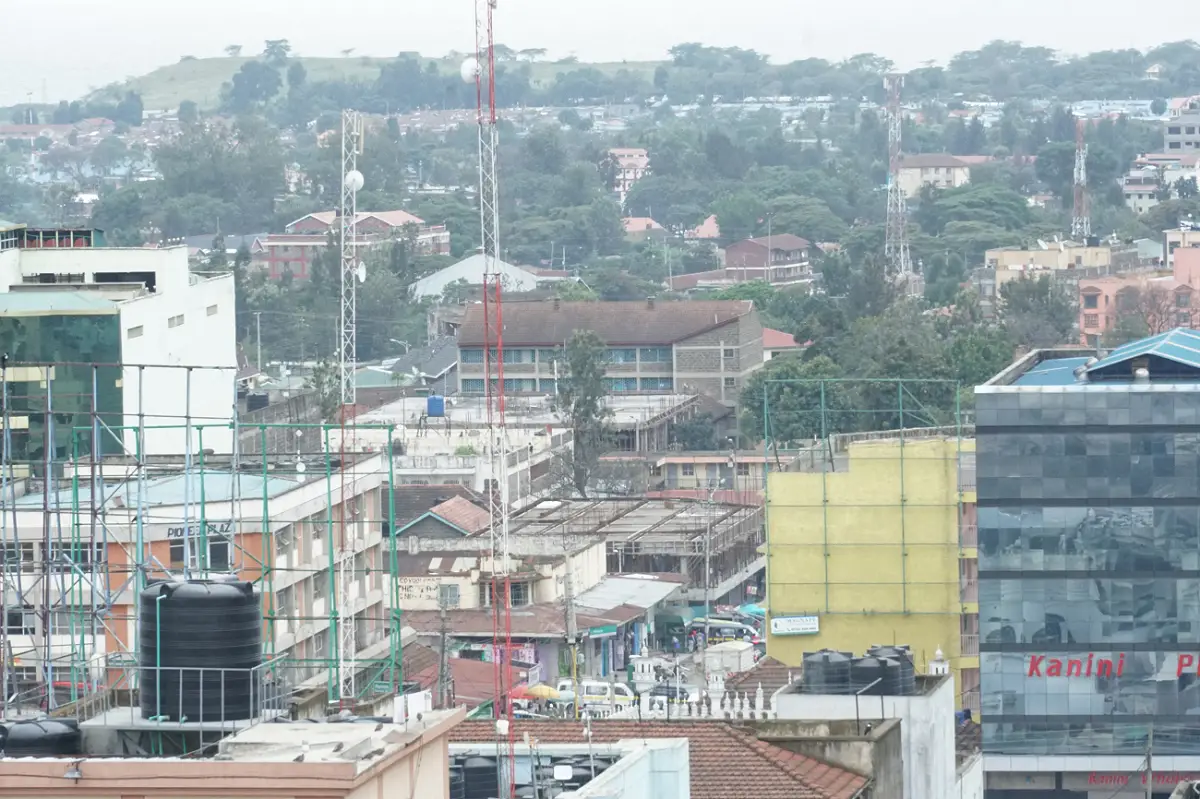
Location and Geography of Nakuru Town
Location of Nakuru Town
Nakuru Town is located in the Rift Valley region of Kenya, about 160 kilometers northwest of Nairobi, the capital city. It sits at an elevation of approximately 1,850 meters above sea level. Nestled between the scenic Menengai Crater and Lake Nakuru National Park, the town enjoys a beautiful and strategic location.
Geography of Nakuru Town
Nakuru Town is situated in a picturesque landscape characterized by undulating hills, vast plains, and stunning lakes. It is surrounded by the Great Rift Valley escarpment, adding to its natural beauty. The town itself is built on relatively flat terrain, making it easy to navigate and explore. The temperate climate, with average temperatures ranging from 20 to 28 degrees Celsius, further enhances the overall appeal of Nakuru Town.
History and Background of Nakuru Town
Early Settlement in Nakuru
Nakuru, originally a Maasai word meaning “dusty place,” has a rich history that traces back to ancient times. It was once inhabited by indigenous communities, including the Nakuru and Tugen people. These early settlers were predominantly pastoralists who grazed their livestock on the fertile plains surrounding the town. Archaeological evidence suggests that Nakuru was also a hub for trade, attracting merchants from neighboring regions.
Colonial Influence and Development
During the colonial era, Nakuru Town experienced significant development as a result of its strategic location and the construction of the Kenya-Uganda railway. The arrival of British settlers brought about urbanization and the establishment of commercial farms in the area. The town became a major trading center, connecting agriculturally rich hinterlands to the rest of the country.
Post-Independence Growth
After Kenya gained independence in 1963, Nakuru Town continued to flourish. It grew rapidly as an administrative, commercial, and industrial hub. The expansion of government institutions, the establishment of industries, and the influx of migrants from various parts of the country contributed to its economic and social progress.
Economy of Nakuru Town
Agriculture and Farming
Agriculture is a significant economic pillar in Nakuru Town. The surrounding fertile lands support the cultivation of various crops, including maize, wheat, barley, vegetables, and flowers. Dairy farming is also prevalent, with many farmers producing milk for both local consumption and export. The town’s agricultural sector plays a crucial role in supplying food to the region and providing employment opportunities.
Tourism and Hospitality
The tourism industry in Nakuru Town is thriving, thanks to its proximity to renowned attractions. Lake Nakuru National Park, famous for its flamingos and diverse wildlife, attracts both domestic and international visitors. The hospitality sector has grown immensely to accommodate the increasing number of tourists, offering a range of accommodations, including luxury hotels, lodges, and budget-friendly options.
Manufacturing and Industries
Nakuru Town has a flourishing manufacturing sector, contributing significantly to the local economy. The town is known for its textile factories, processing plants, grain mills, and chemical industries. Additionally, a growing number of small and medium-sized enterprises have emerged, contributing to job creation and overall economic development.
Services Sector
The services sector in Nakuru Town is vibrant and diverse. It encompasses banking and finance, healthcare, education, retail, and hospitality. The town has several commercial banks, supermarkets, shopping centers, and vibrant markets where locals and visitors can find a wide array of goods and services.
Economic Challenges
While Nakuru Town has experienced substantial economic growth, it also faces some challenges. Limited access to credit for small businesses, inadequate infrastructure, and occasional fluctuations in agricultural productivity are among the hurdles that need to be addressed to ensure sustained economic development.
Infrastructure and Transportation in Nakuru Town
Road Network
Nakuru Town boasts a well-developed road network, connecting it to various parts of Kenya. The town is situated along the busy Nairobi-Nakuru highway, which serves as a major transport corridor. Additionally, numerous roads within the town and its environs provide easy access to residential areas, industrial zones, and tourist attractions.
Railway Connections
The Kenya-Uganda railway, constructed during the colonial era, passes through Nakuru Town. The railway provides an important transportation link for both cargo and passenger services, facilitating trade and mobility within the region.
Air Transport
Nakuru Town does not have its own airport; however, it is conveniently located near two major airports. Jomo Kenyatta International Airport in Nairobi and Eldoret International Airport are both within a few hours’ drive, offering domestic and international flights.
Public Transportation
Nakuru Town has a reliable public transportation system, primarily consisting of matatus (minibusses) and boda-bodas (motorcycle taxis). These affordable modes of transport cater to both short and long-distance journeys within the town and its surroundings. Additionally, taxis and car-hire services are readily available for those who prefer more convenience and flexibility.
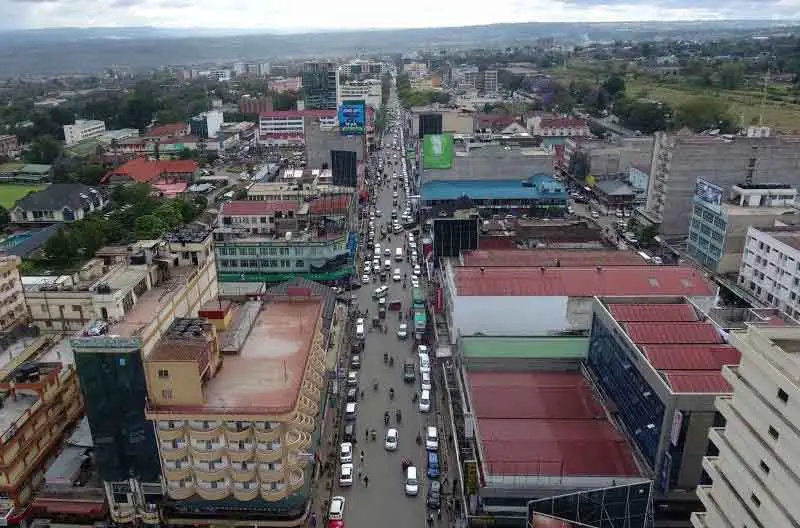
Education and Healthcare in Nakuru Town
Schools and Educational Institutions
Nakuru Town prides itself on having a wide range of educational institutions that cater to all levels of education. From preschools to universities, the town offers quality education to its residents. Some of the notable educational institutions include Nakuru High School, Nakuru Girls’ High School, Egerton University, and various technical and vocational training institutes.
Health Facilities and Services
Nakuru Town boasts a well-established healthcare system, providing accessible and quality healthcare services to its residents. The town has public and private hospitals, clinics, and specialized medical centers. Moi Teaching and Referral Hospital, located nearby, is a renowned facility that offers advanced medical care and training.
Tourist Attractions in Nakuru Town
Lake Nakuru National Park
Renowned for its stunning pink flamingos and diverse wildlife, Lake Nakuru National Park is one of the town’s most popular attractions. The park offers breathtaking views, game drives, bird-watching opportunities, and nature walks, providing visitors with an unforgettable experience in the heart of nature.
Menengai Crater
The Menengai Crater, one of the largest volcanic craters in the world, is a must-visit destination near Nakuru Town. The crater offers panoramic views of the surrounding landscapes, and adventurous hikers can explore its trails and caves, immersing themselves in the area’s geological wonders.
Hyrax Hill Prehistoric Site
Hyrax Hill Prehistoric Site takes visitors on a journey back in time, showcasing the rich archaeological heritage of the region. The site preserves ancient artifacts, dwellings, and burial grounds, allowing visitors to delve into the history and culture of the early settlers in Nakuru.
Lord Egerton Castle
Lord Egerton Castle is a magnificent architectural masterpiece located on the outskirts of Nakuru Town. Built in the early 20th century, the castle displays a unique blend of European and African influences. Visitors can tour the castle, admire its grandeur, and learn about the intriguing story behind its construction.
Makalia Falls
Makalia Falls is a hidden gem nestled within Nakuru’s picturesque landscape. The falls provide a peaceful escape from the bustling town, offering visitors a chance to relax, picnic, or enjoy a refreshing dip in the crystal-clear waters.
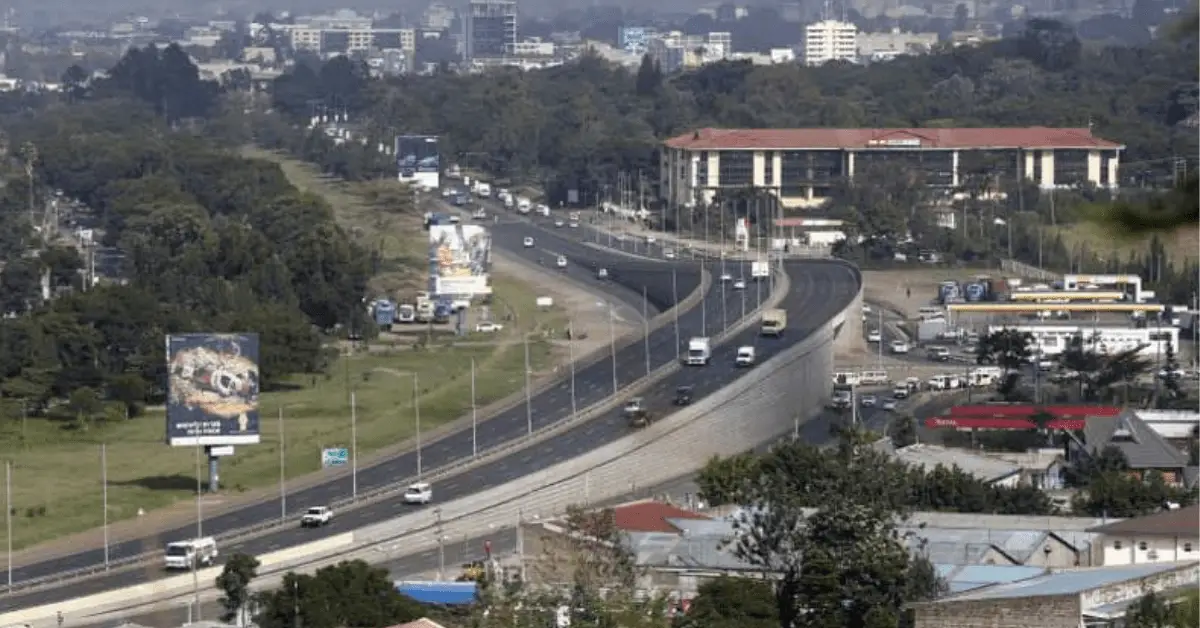
Cultural and Festive Celebrations in Nakuru Town
Nakuru International Cultural Festival
The Nakuru International Cultural Festival is an annual event that celebrates the diverse cultural heritage of the town and its surrounding regions. The festival features vibrant performances, traditional music, dance, art, and culinary delights, providing a platform for cultural exchange and appreciation.
Nakuru Town Carnival
The Nakuru Town Carnival is a colorful and lively celebration that brings together residents and visitors in a festive atmosphere. The carnival showcases various art displays, parades, music performances, and street vendors offering delicious local cuisines and handicrafts.
Religious Festivals
Nakuru Town is home to people from different religious backgrounds, and religious festivals play an essential role in the town’s cultural fabric. Festivals such as Eid al-Fitr, Christmas, Diwali, and Easter are celebrated with great enthusiasm and are marked by prayers, feasts, and community gatherings.
Sports and Recreation in Nakuru Town
Nakuru Athletics Club
Nakuru Athletics Club is a vibrant sports institution that encourages and promotes athletics among the town’s residents. The club organizes regular training sessions, competitions, and events, nurturing talent and fostering a healthy and active lifestyle.
Rugby and Football Clubs
Nakuru Town has a strong sporting culture, with rugby and football being among the most popular sports. The town boasts several rugby and football clubs that participate in local leagues and tournaments, attracting both players and enthusiasts from across the region.
Recreational Parks and Facilities
For those seeking recreational activities, Nakuru Town offers a range of parks and facilities. Menengai Forest, for example, provides nature trails for hiking and bird-watching. Additionally, there are playgrounds, picnic spots, and sporting fields scattered throughout the town, catering to individuals and families alike.
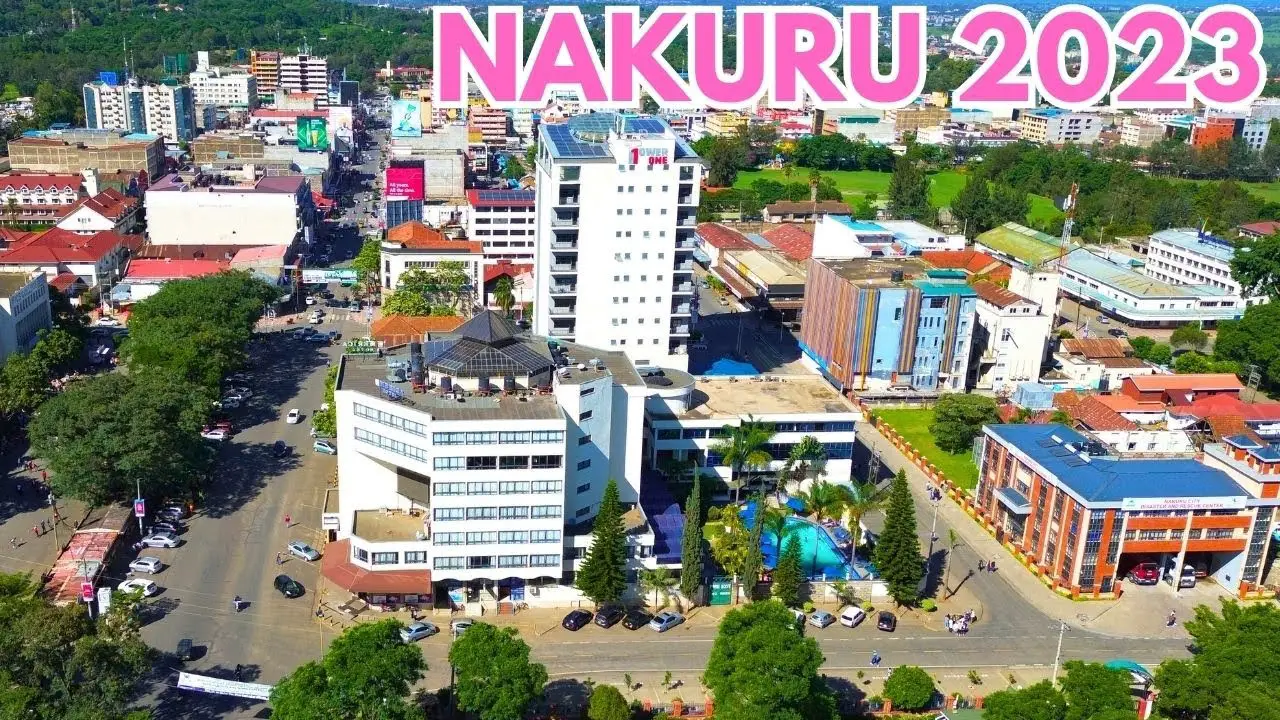
Safety and Security in Nakuru Town
Crime Rate
Nakuru Town, like any urban center, faces its share of safety and security concerns. However, the local government, in collaboration with the police and community members, has implemented initiatives to ensure the safety and wellbeing of residents and visitors. Regular police patrols, community policing forums, and awareness campaigns contribute to maintaining a secure environment.
Police and Law Enforcement
Nakuru Town is served by a well-equipped police force that works diligently to maintain order and protect the community. The police actively engage with residents, offering assistance and advice, and promptly responding to any security-related incidents.
Community Safety Initiatives
The residents of Nakuru Town actively participate in community safety initiatives, forming neighborhood watch groups and community-based organizations focused on crime prevention and promoting a sense of unity and collective responsibility.
Demographics of Nakuru Town
Population Size and Composition
Nakuru Town has experienced substantial population growth over the years, with the current population estimated to be over one million people. The town boasts a diverse population, comprising various ethnic groups from different parts of Kenya, creating a cultural melting pot.
Ethnic Diversity
The ethnic diversity in Nakuru Town is one of its defining features. The major ethnic groups include Kikuyu, Luo, Maasai, Kalenjin, Luhya, and Kisii, among others. This diversity not only adds vibrancy to the town’s cultural fabric but also fosters social cohesion and understanding among different communities.
Migration Patterns
Nakuru Town has been a magnet for migrations due to its economic opportunities and favorable living conditions. People from various parts of Kenya have relocated to Nakuru in search of employment, education, and better livelihoods. This influx of migrants has contributed to the town’s cosmopolitan nature and has led to the development of diverse neighborhoods within Nakuru.
